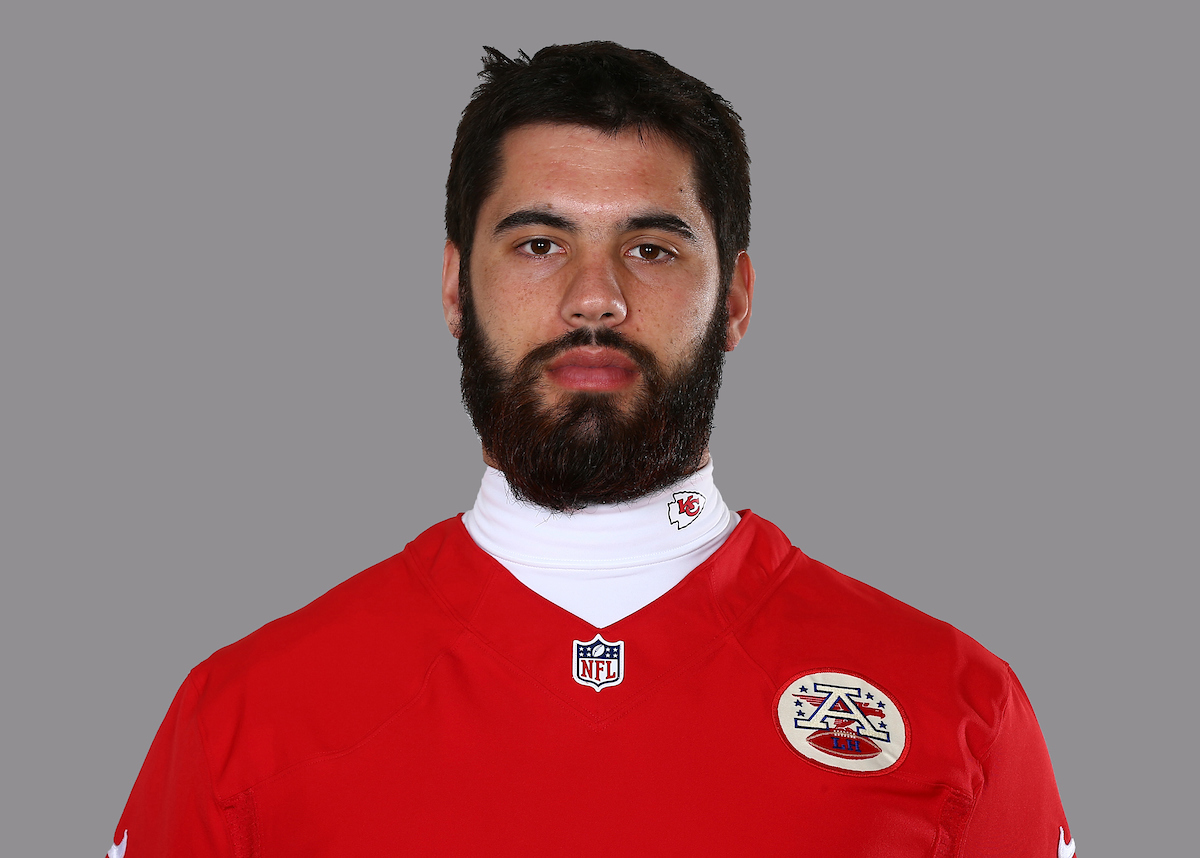Chiefs’ Laurent Duvernay-Tardif follows through on childhood goal to become a doctor
Laurent Duvernay-Tardif is thriving in his NFL career as a starting right guard for the Kansas City Chiefs. But when the day comes, as it does for all players in the league, that he’ll need something else to do for a living, his fallback plan is as impressive as any.

This is a photo of Laurent Duvernay-Tardif of the Kansas City Chiefs NFL football team. This image reflects the Kansas City Chiefs active roster as of Wednesday, July 5, 2017. (AP Photo)
Laurent Duvernay-Tardif is thriving in his NFL career as a starting right guard for the Kansas City Chiefs.
But when the day comes, as it does for all players in the league, that he’ll need something else to do for a living, his fallback plan is as impressive as any.
‘Because after all, medicine for me is kind of like my initial goal’
This week, Duvernay-Tardif graduated from medical school at McGill University in Montreal.
“Back in 2014, when I was drafted by the Chiefs, I was like, ‘You now what? It’s something I want to do, I want to be able to get my MD from McGill,'” he told Jim Miller and Pat Kirwan on Movin’ The Chains. “Because after all, medicine for me is kind of like my initial goal. Growing up as a kid, that’s what I wanted to do, so I was like, ‘You know what? Why not do both at the same time?'”
‘(Andy Reid has) been really flexible in regards to my schedule as well as the faculty of medicine’
“And when I met Coach (Andy) Reid, back in 2014, during the pre-draft visit, he was kind of the only head coach that I talked to that saw the medical thing as a positive thing. He was like, ‘I’m going to do everything I can to help you,’ and he’s been really flexible in regards to my schedule as well as the faculty of medicine. So that’s what made it possible for the last four years, going back and forth from NFL life to medical school life in the offseason.”
It was a challenging balancing act. But with support from the Chiefs and the medical school faculty, Duvernay-Tardif was able to make it work.
‘I was able to kind of like read (text books) a little bit on my own while I was in Kansas City during the season’
“The way it worked for me in regards to my schedule was that every offseason, I had to report back to Montreal within a week after the last game,” he said. “And basically I was starting clinical rotation. The big thing about when I got drafted is that I got drafted two years into the medical school program, so my last two years were only clinical rotation, so basically every month you were starting into a new department. So even though it was kind of hard to get back into the rhythm of waking up at 6:30 (in the morning) and being on floor to do rounds with patients, super early and leaving late, every time I was starting a new rotation, I was with other students that were starting that new rotation so there was not too much of a clash.
“Plus, I was able to kind of like read (text books) a little bit on my own while I was in Kansas City during the season, which helped.”
‘At the end of the day, my job in the locker room is to play football and I try to commit myself a hundred percent to it’
Duvernay-Tardif has no problems keeping the two professions separate. “At the end of the day, my job in the locker room is to play football and I try to commit myself a hundred percent to it,” he said.
Duvernay-Tardif would like the back of his jersey to show his scholarly achievement, by having M.D. added to it. The NFL doesn’t allow for such additions.
‘The rules are the rules’
“I made a request (to the NFL), but the rules are the rules,” he said. “So we’ll see what’s going to happen. To be honest, I’m not going to try to push it too much. If it’s no, it’s going to be no. We’ll see.”

Music, Sports, News and more
All in one place on the SiriusXM app


